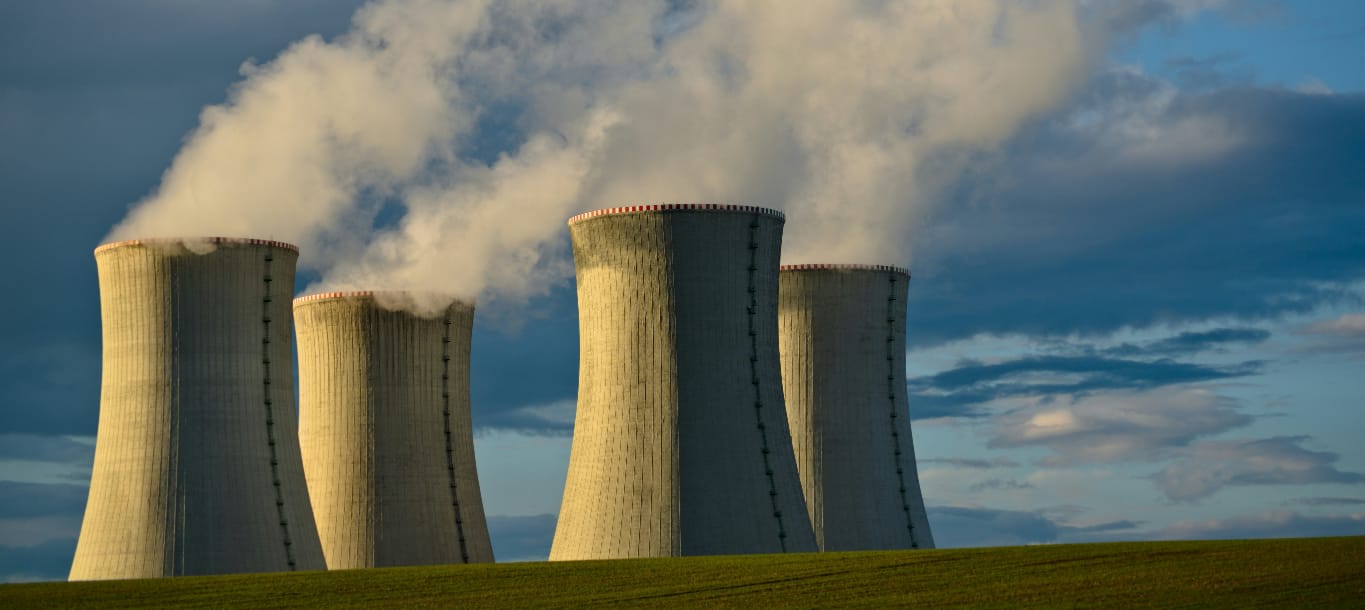What is a nuclear engineer?
Atomic reactions result in the release of nuclear power. While nuclear power is primarily used to generate electricity, it can also be used to diagnose and treat diseases via diagnostic radiology imaging or even solve criminal investigations using radioisotopes to analyse microscopic traces of evidence. It’s also a more sustainable energy source, as it's reliable and carbon-free.
Nuclear engineers ensure that the production of nuclear energy is safe and efficient. Nuclear energy is processed into electricity via nuclear power stations, so nuclear engineers specialise in a specific part of the running of these stations. For example, as a nuclear engineer, you could lead the design, building, running or decommissioning (closing down) nuclear power stations. You could also specialise in a specific aspect of nuclear systems, such as managing electrical systems or hydraulics (water systems).
What are the typical responsibilities of a nuclear engineer?
- Designing and building new nuclear power stations and equipment
- Maintaining radiation levels and existing nuclear equipment
- Supporting the decommissioning of old nuclear power stations
- Planning the safe disposal of nuclear waste, by adhering to local and national regulations
- Supporting research into cleaner ways to produce nuclear energy
- Utilising maths and computer models to plan out new research
What skills do you need to be a nuclear engineer?
STEM skills (especially maths and computer literacy) are important, to develop computer models and operate electrical systems effectively.
Problem-solving skills are also valuable, to tackle any technical issues or faults that may crop up.
Finally, innovation and open-mindedness allows you to stay up to date with new developments in the sector. In the UK, the government has pledged to increase nuclear generation by up to four times the current amount by 2050. There’s also an increased focus on making the process more sustainable. All nuclear engineers thus need to stay up to date with these changes and what they could mean for their work.
How do I become a nuclear engineer?
You can complete a nuclear science focused apprenticeship, such as the Nuclear Scientists and Nuclear Engineer Level 6 Degree Apprenticeship or the Nuclear Reactor Desk Engineer Level 6 Degree Apprenticeship. Or, you could complete a degree in a STEM subject, such as Maths, Nuclear engineering or Physics with nuclear technology.
One thing to keep in mind is that you’ll need to pass security checks before you’re allowed to work on a nuclear power site.
How can I learn more about the nuclear sector?
Destination Nuclear and the Nuclear Institute offers tips and resources for those interested in pursuing a nuclear science focused career. The Nuclear Institute is in fact the only professional membership body dedicated to the nuclear sector.
If you’re looking for work experience or jobs in the sector, check out Nuclear Sector Jobs and Nuclear Graduates. The latter’s two-year graduate scheme offers two years of professional development training in different areas of the industry.
